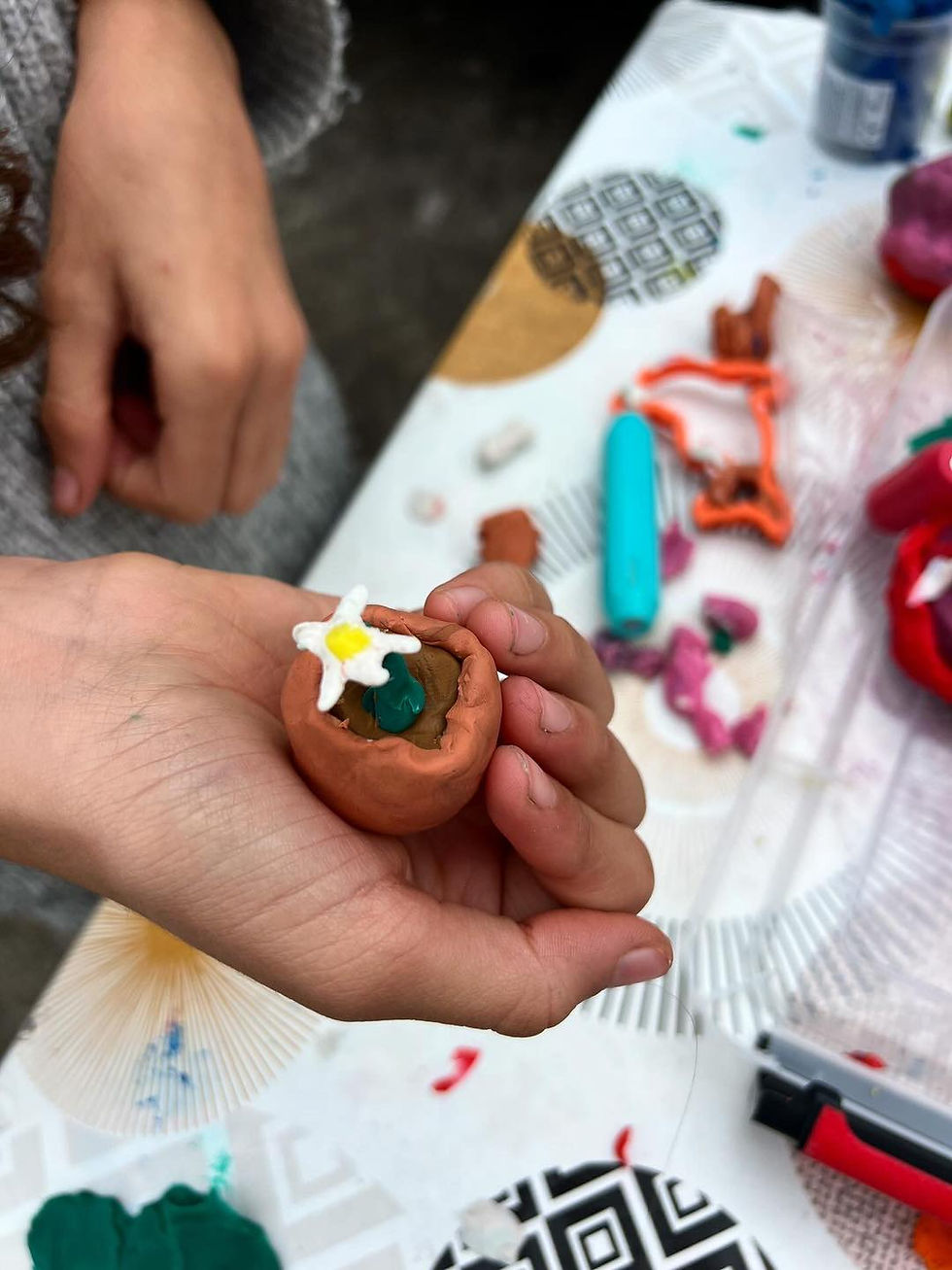Finding space – inside and out
- Art Refuge

- Oct 29, 2016
- 3 min read

This week over five thousand former residents have been dispersed on buses to reception centres (CAOs) across France, while the Calais refugee camp itself has largely been dismantled. Police presence has been heavy, and around one thousand five hundred unaccompanied minors still remain in the camp, mostly now occupying the official Sate-sanctioned shipping containers known as Le Cap.
Before we got to the camp we didn’t know if we would be allowed in, even with special passes. Yesterday however, with a group of residents still waiting to leave, we moved between the inside of the camp and its perimeter, where we set up a table, whilst on Friday setting up space inside the camp outside the containers. Throughout the two days we were unsure what spaces we would or could inhabit, and if they would be available, or safe, mirroring people’s experiences. As it transpired, both spaces have been points of significant tension over many months, and no less so this week.
THURSDAY On Thursday morning we found that large areas of the camp, including the main high street that had once inhabited restaurants, the kids cafe and other communal spaces, had been burnt to the ground, leaving charred timber structures and remains of cooking utensils, furniture, personal belongings, the remnants of previously occupied and activated spaces.
Across the camp we also found high tension due to confusing and often conflicting information. Concerns were heightened because anyone not registered would be arrested or put on buses to reception centres.
In the afternoon, around one hundred bewildered, tearful or frightened minors, and some adults – many of the same group that had slept outside for the two previous nights – were grouped together just beyond the bridge outside the camp and then kettled by the police. They thought they awaited buses to take them from the camp but they never arrived.
Here we had been invited to set up an art table on the grass alongside Medecins du Monde’s mobile clinic. People were however too distracted to engage, just wanting to find answers to their impossible to answer questions. Some also had friends on the inside beyond the police cordon who they could no longer access.
Later that afternoon we sat in the empty, abandoned school where so many people we’ve worked with have been taught English or French. The spaces felt so full of lost promises, and desperately sad. The next morning we discovered that the school had been used to accommodate those waiting for the buses that had never arrived. Such is the madness of this place.
FRIDAY This was a different sort of day in which we walked across most of the camp, revisiting the now empty spaces we’ve worked in for months with Medecins du Monde and Medecins Sans Frontieres, and tried to make sense of the vast swathes of tents, caravans and shelters destroyed by fire since Thursday. Walking past the entrance to Le Cap we were encouraged to set up a table outside the entrance in amongst the police vans, groups of teenagers and workers clustered around on the sand bank and regularly passing demolition trucks.
Bringing boxes of simple art materials and a trestle table we set up a space for around four hours during which time between 80 and 100 teenage boys came to draw, make plasticine figures or engage in conversations around their progression to asylum.
Boys jostled for space at the table, trying to find room to draw and create imagery depicting flags of different countries united on one page, vehicles and words expressing hope for a more united and tolerant world or access to the UK. The mood was initially frenetic and the objects roughly made, but this gave way to more careful, symbolic work and moments of intimate individual conversations in which space was given for boys to express their fears about the process of finding a place of safety.
As we left the camp at the end of the day, the school that had sheltered those still waiting for asylum was being demolished. We learnt that the buses had finally arrived in the afternoon to take this group of residents from the camp, though it was unclear where to.
Finally we visited a Sudanese man in hospital who we have known now for many months. Joined by his friends, we talked of literature, Arabic poetry and a reminder of what connects us in humanity.



Comments